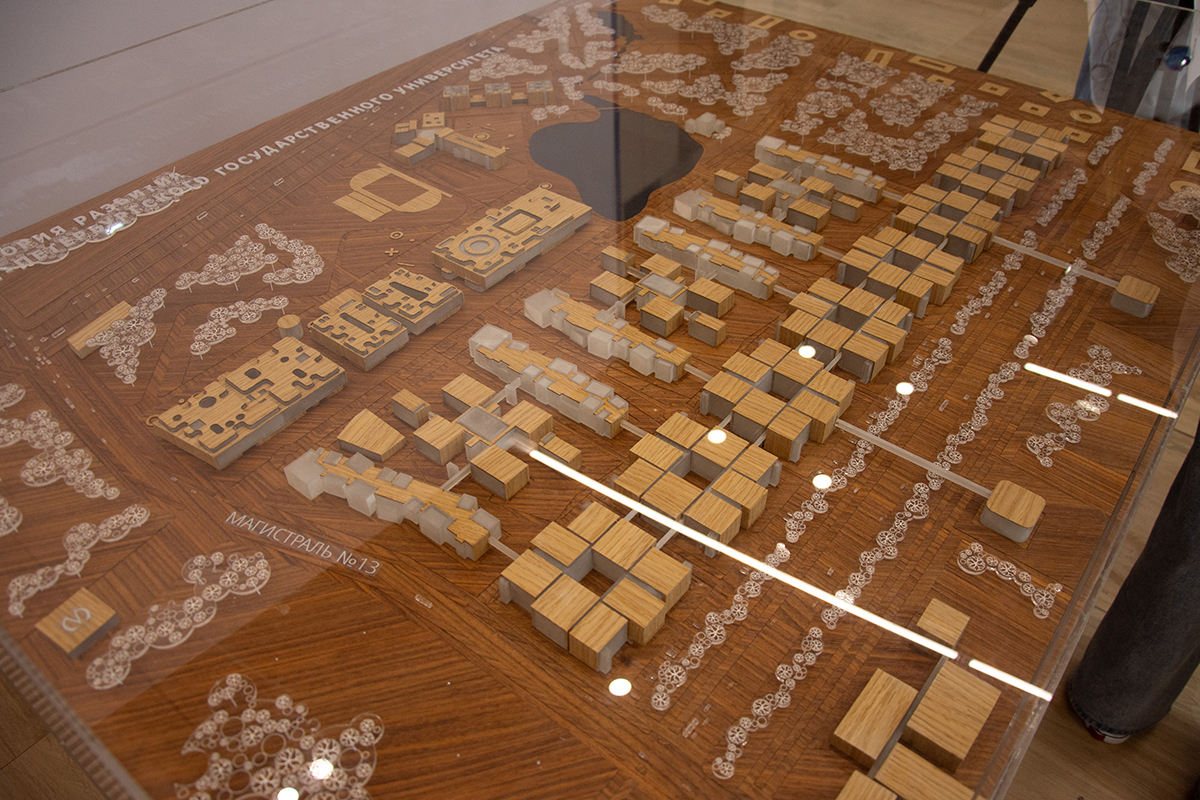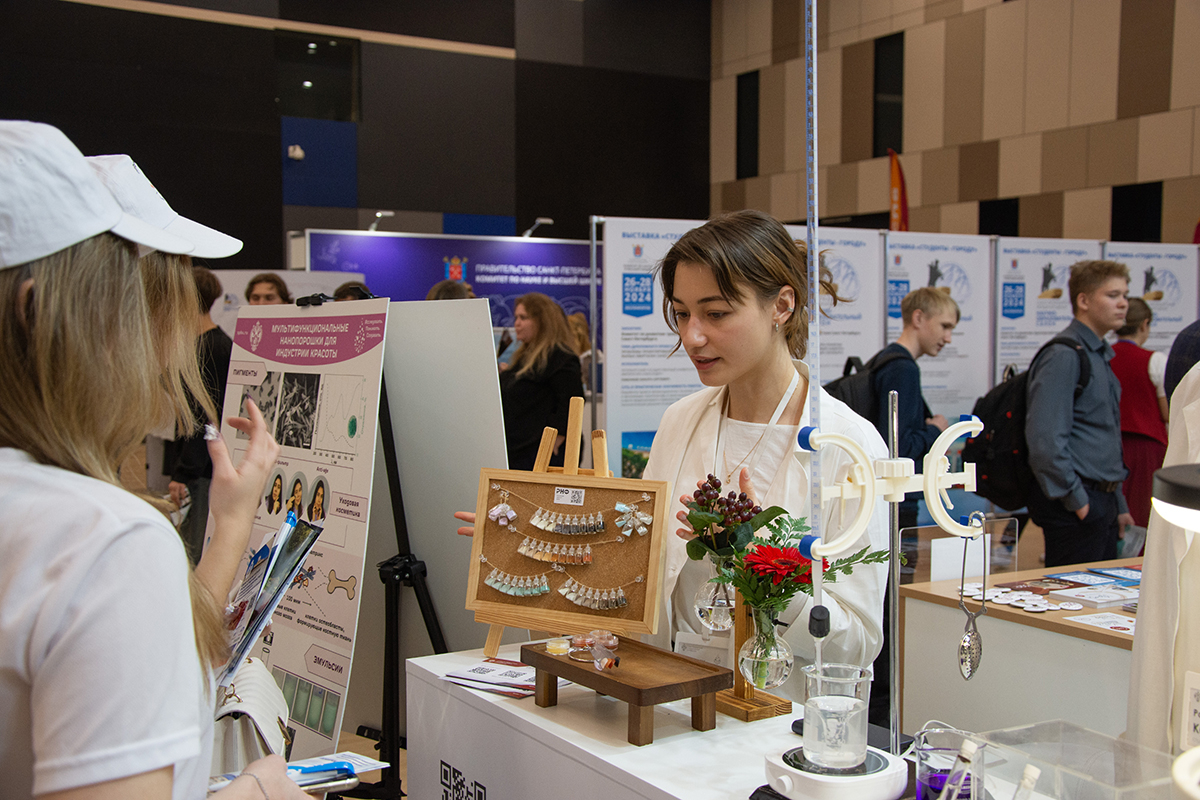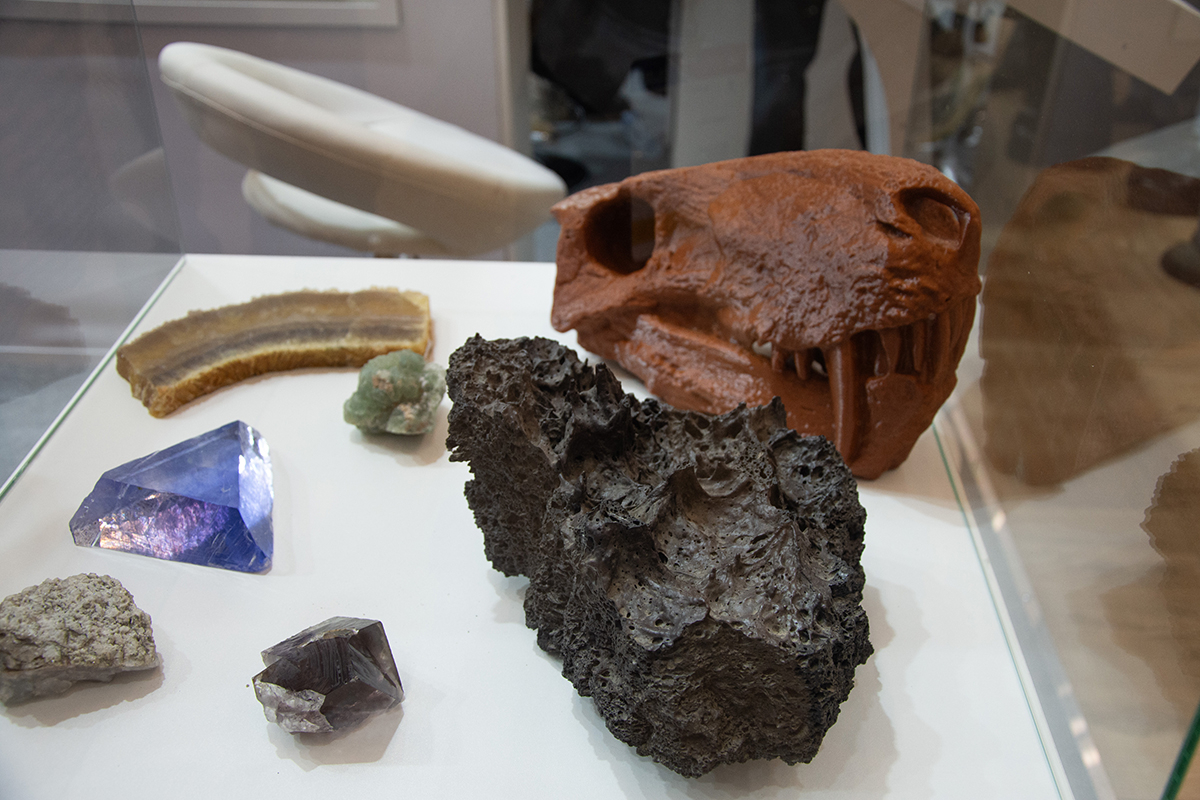From ancient fossils to AI: St Petersburg University showcases its achievements at the St Petersburg International Scientific and Educational Salon
As part of the St Petersburg Week of Science and Professional Education, the International Scientific and Educational Salon has opened in St Petersburg. This event is the largest of its kind, offering visitors the opportunity to explore academic programmes and technological advancements from leading universities and research organisations. St Petersburg University, as always, is one of the most prominent participants in the Salon.
This year, the Salon focused on the role of education and science in driving rapid growth for the national economy and fostering Russia’s spiritual and moral development.
The plenary session, titled "Vocational Education, Science and Innovation in the 21st Century," commemorated the 300th anniversary of the Russian Academy of Sciences and St Petersburg University. It focused on the role of science and professional education in enhancing the quality of human life. The discussion was moderated by Vladimir Knyaginin, Vice-Governor of St Petersburg.
Last year, at the opening of the Salon, Alexander Beglov, Governor of St Petersburg and Member of the Board of Trustees of St Petersburg University, announced that the year 2024 would mark the 300th anniversary of the University.
Elena Chernova, Academic Secretary and Deputy Chairperson of the Academic Council of St Petersburg University, participated in the plenary session. In her address, she stressed that the University is highly successful in attracting international students, with the highest competition in Russia for government-funded places among international applicants this year. As a result, the University enrolled 1,230 foreign citizens in government-funded places and around 1,000 on a contractual basis. Currently, over 5,000 international students are enrolled in St Petersburg University’s academic programmes.
Elena Chernova emphasised that St Petersburg University is committed to being a global ambassador for Russian education. Initiatives such as the unique Online School of St Petersburg University for international students, along with the University’s representative offices and Russian language centres operating in over 120 countries, support this mission.
St Petersburg University aims to promote the presence of the Russian Federation in the global education arena, so that more and more people learn about Russia, its history, values, and traditions. As students complete their study programmes and leave, they remain connected to the University and take with them a piece of our culture.
Elena Chernova, Academic Secretary and Deputy Chairperson of the Academic Council of St Petersburg University
This year, visitors to the St Petersburg Scientific and Educational Salon had the unique opportunity to explore the work of all 22 educational clinics at St Petersburg University. These clinics make it possible for students to gain practical skills by working on real-world projects requested by companies and individuals. St Petersburg University students and lecturers discussed the integration of internship programmes into the teaching and learning process and led interactive sessions, including business games, tests, and surveys. Experts from the Centre for Financial Literacy at St Petersburg University offered advice on money management, while interns from the Linguistic Clinic conducted testing to assess functional proficiency in the Russian language. Representatives from the Mediation Centre guided guests through conflict resolution exercises.
The Clinic of Communication Projects at St Petersburg University offered tests for salon participants to assess their personal brand, identify its level and areas for development and understand steps needed to reach their desired goals. "A personal brand is about how you position yourself, your product, or your area of activity," explained Olga Kottsova, a third-year student in the Advertising and Public Relations programme at St Petersburg University. "The types of goods or services can vary significantly, but your positioning will impact your earnings and how clients perceive your message. Our clinic is often approached by companies seeking assistance in creating brands. This summer, we completed a full rebranding of the Student Scientific Society of St Petersburg University. Their new design aligns with the University’s style while maintaining a youthful appeal."
Visitors to the St Petersburg International Scientific and Educational Salon can examine a model of the Area of St Petersburg University Development. This project aims to create a modern education and research infrastructure hub near the high-speed railway and motorway. One of the sites for the Neva Delta Innovative Science and Technology Centre, which is officially included in the Neva Delta Centre by a decree signed by the Government of the Russian Federation, will be a 100-hectare territory in the Pushkinsky District of St Petersburg. This site is located on the border between St Petersburg and the Leningrad Region, close to the Area of St Petersburg University Development.

The interdisciplinary stand at the exhibition space of the Salon, showcasing the breadth of the University’s activities, features all levels of education and scientific achievements from both scholars and students. These range from research on ancient Earth inhabitants to advancements in AI technologies.
Roman Bapinaev, a doctoral student at St Petersburg University, explained how computed tomography enables us to study non-preserved soft tissues of dinosaurs. By creating a virtual slice of an animal’s skull, palaeontologists can generate a digital cast of the braincase that occupied that cavity, providing insights into its structure. "This information can reveal more about the biology of these animals and help reconstruct important evolutionary trends," Roman Bapinaev said. "Currently, we are examining a very brief historical window in the context of all living creatures, observing modern birds and mammals. However, this diversity has evolved over millions of years. Palaeontology will help us understand how the brains of various living creatures developed."
At the University’s stand, the St Petersburg University Centre for Artificial Intelligence and Data Science presented a new project in development: a modular platform designed to create prototypes of complex components and implement technologies on finite devices with low power or no Internet access. Visitors to the Salon can also observe a 3D printer in action and take a test to determine whether a human or a neural network authored various texts.
The St Petersburg University’s stand also features the University’s Museum collections and expositions commemorating the 125th birth anniversary of Vladimir Nabokov and the 190th birth anniversary of Dmitri Mendeleev.











